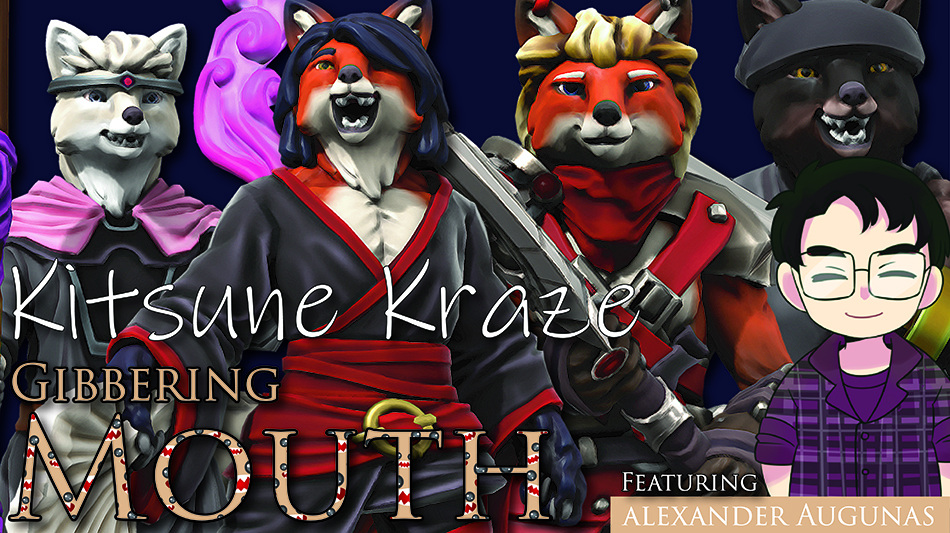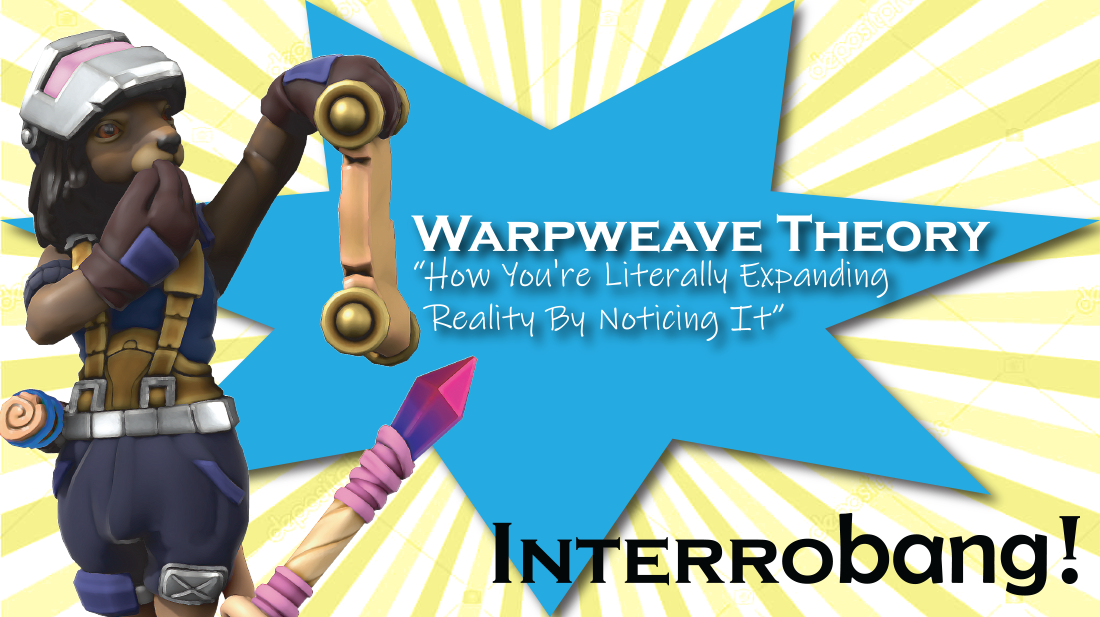Welcome to Guidance, Private Sanctuary’s source for tips and techniques for the Pathfinder Roleplaying Game, written by Everyman Gamer Alexander Augunas. Today, we’re going to be talking about growing your character through roleplaying.
Everyone loves a good story, roleplayers moreso than anyone. Usually when a player puts a Pathfinder character—not a build, but a character—together, they obsess for hours over the intricacies of that character’s personality. Her ins and her outs. Her quirks and her traits. Everything. After putting so much work into a character, reciting her around and around in your head non-stop until you’ve absolutely perfected the essence of what it means to be that person, it can be very difficult to hear someone say the following to you:
“Dude, your character’s really stale and predictable.”
BUT WHY, GASP?! WHY IS THIS ABSOLUTELY PERFECT BEING BORING AND TRITE?! WHY DO YOU NOT LOVE THIS PERSON AS I DO?!
Well, the very simple reason is as follows—your perfectly sculpted personality doesn’t feel legitimate or sincere, and today on Guidance I’m going to explain why.
Flesh vs. Plastic
Before we continue, I’d like to ask that you stop for a moment and consider the following question—are you the same person that you were last year? How about two years ago? Three years ago? And I don’t mean, “Basically the same,” I mean, “Genuinely identical.” If I went back in time and pulled you to the future to meet you as you are today, would the two of be exactly the same?
The answer, probably, is no. As humans, we are shaped by the things we experience in our daily lives. Sometimes those changes are dramatic and occur in an instant. Sometimes they are subtle and only emerge after months or even years. But ultimately it is important to allow your character’s personality and motivations to grow and evolve as new things happen to him or her, because continuity is what makes episodes into an overarching story—even if we don’t know what is causing the growth, seeing characters change drives interest in them. It is the difference between playing as a living, breathing person and a Barbie doll.
How to Grow
One of the more difficult bits in “growing” a character is figuring out just what constitutes growth. If you’re playing a Chaotic Neutral barbarian who murders everything and one time you decide NOT to kill someone for an unspecified reason, then that’s not character growth. Character growth is a reaction to something going on around a character—people typically do not change unless some force challenges them to change, be it an external force like an orc invasion or some existential threat to the character’s wellbeing or an internal force like one’s personal goals and desires. Change typically comes in the form of powerful, life-changing events in the real world. Events that typically do not happen all that frequently, especially as we age.
Luckily, as an adventurer major world-shattering events happen ALL the time. Like, seriously. You may think that your CR 10 encounter against a babau or whatever was, “Just another fight,” but you seriously just took down a demon. A DEMON. This is a being that, while you know exists, the average person never gets to meet. And we’re only talking about “typical” encounters—what about the earthshattering events that your character experiences? The ones that push the plot forward?
For example, if you’re a Pathfinder Society player, more than one adventure has your headquarters, the Grand Lodge, brought directly under siege by a terrible enemy. People die all around you—friends, coworkers, neighbors. People you don’t know. Imagine this happened to you in the real world, like at your place of employment. How would it feel to walk around your work’s campuses or offices, or drive your route or enter your assembly line only to know that Frank from accounting died just five feet away from where you’re currently typing at your desk? To jump at every creak in the floorboards and grow tense every time the door opens, just because it could be your boss telling you to go on break, or it could be another attack. One you aren’t going to survive.
Stuff like this CHANGES people, and how your character reacts to the weight of such burdens as a person defines him or her as a character. How do they change and adapt to the things that have happened to them? Can they adapt at all? These are the interesting characters that make your character as an individual, not your well-scripted and rehearsed backstory.
And now, for some examples!
An Overt Example
Know Direction’s very own James Ballod has a tengu gunslinger in PFS named Kamilla Crackshot. She has a lot of interesting character quirks that I could talk about, but two that are worth repeating are her love of food and her fear of motherhood.
When I ran Masks of the Living God for James and some other locals, the party encountered a cult of Rasmirians who offered them a delicious all-you-can-eat meal. Kamilla took them up on it—she ate everything she could. When a cultist asked if she, “Wanted a wheel barrel for her portions?” her eyes grew wide. “You can order food by the wheel barrel-ful?” From that day on, Kamilla always began every adventure by filling her lead wheel barrel (so no one could scry on her food to steal it) with tasty goodies. James calculated out the weight and volume, even, so he knew how much gold to spend to fill the wheel barrel to the brim. Boom, instant character development.
A more psychological example also comes from James—in one PFS adventure, Kamilla’s party got hit with a TPK, and Kamilla was brought into the Ethereal Plane to serve as the spawn-mommy for a colony of Xill. Kamilla was eventually rescued (she had the Prestige for a body recovery, as she didn’t actually die during the adventure), but Kamilla was emotionally scared by the experience. Anytime anyone asked Kamilla about laying eggs or motherhood, she would freak out and say, “Never, nope, NEVER!” For those who knew what happened to hear, she would deny it vehemently, for she had so forcibly repressed it that she would just sort of wig out as described. Eventually she got the memory removed from her head by a group of caulborn, but now she makes references to, “Not quite being able to remember,” what she did for a few months,” every now and then.
An Invert Example
Now, for one option from one of my own characters—my Reign of Winter character Zanzo Xitan. At the start of our campaign, Zanzo was a very bright-eyed, naïve character who was very much against James’s dhampir rogue, Raynard, who had a very Neutral Evil outlook of the world. He was all about “stab first, ask questions later and do what you have to in order to survive.” Zanzo and Raynard even got into one confrontation—it ended with me getting sneak attacked to the brink of death. As the game progressed, however, Zanzo and Raynard started to see more eye to eye. Zanzo began seeing that the government of Irrisen for what it really was, and found a lot of value in Raynard’s methods of, “Stay alive to keep fighting.” Zanzo isn’t usually “Shoot first, ask questions later,” but through adventuring with Raynard and his mort chaotically-aligned party, he’s picked up an appreciation for action in the face of adversary, and learned that you can’t always talk evil into submission. This change in Zanzo’s thinking was best captured in the following exchange:
NPC: ~talks about how a villain we’ve been hunting has been kidnapping children to blackmail their parents~
Zanzo: “We need to find that hag and murder her.”
Party Healer: “Wow, I mean I’m all for that course of action, but that’s incredibly bloodthirsty for you, Zanzo.”
Zanzo: “She’s already taken kids. Multiple kids. There’s clearly no reasoning with her. We have to take her out, and I’d prefer to let out a little aggression in the process.”
Characters can and should change during the course of play. Knowing how and when to change a character is both intuitive and a skill that must be mastered, but when done well it often makes the character more memorable simply because the character will surprise people at the table. Maybe even her player.
Alexander “Alex” Augunas has been playing roleplaying games since 2007, which isn’t nearly as long as 90% of his colleagues. Alexander is an active freelancer for the Pathfinder Roleplaying Game and is best known as the author of the Pact Magic Unbound series by Radiance House. Alex is the owner of Everyman Gaming, LLC and is often stylized as the Everyman Gamer in honor of Guidance’s original home. Alex also cohosts the Private Sanctuary Podcast, along with fellow blogger Anthony Li, and you can follow their exploits on Facebook in the 3.5 Private Sanctuary Group, or on Alex’s Twitter, @AlJAug.





